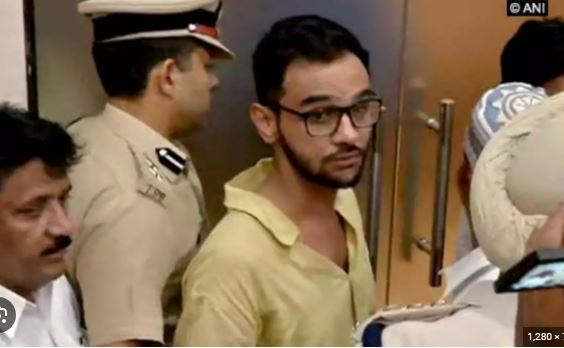
Five adjournments in 2 months in bail hearing of Umar Khalid in UAPA case
text_fieldsNew Delhi: The Supreme Court is under increasing scrutiny for what some see as undue delays in the bail plea hearing of Umar Khalid, an activist and former JNU scholar who has been incarcerated since September 2020 in connection with the Delhi riots case.
Khalid's plea has been listed before the court seven times but has faced five adjournments for various reasons, including procedural issues and unavailability of the defence counsel. On Tuesday, the Supreme Court adjourned the case for a week.
Khalid, who stands accused of being a "mastermind" behind the Delhi riots, has been discharged in cases related to stone pelting but continues to await bail in the larger conspiracy case, charged under the Unlawful Activities (Prevention) Act (UAPA).
Khalid turned to the Supreme Court in April of this year after being denied bail by the Karkardooma Court in March 2022 and the Delhi High Court in October 2022.
Despite the Supreme Court's initial commitment to expedite proceedings concerning citizens' liberty, Khalid's bail plea has encountered several postponements. Just a month after the plea's first listing, the Supreme Court emphasized the need for swift hearings and concise proceedings.
On May 18, the Supreme Court issued a notice to the Delhi Police over Khalid's bail petition, granting them six weeks to file a response. Khalid's lawyer, senior advocate Kapil Sibal, opted to wait until after the summer vacation for the matter to be heard, despite being allowed to approach the vacation bench.
On July 12, after six weeks had elapsed, the Delhi Police requested more time to file a response, citing the extensive charge sheets against Khalid. The court granted an additional 12 days, setting the hearing for July 24, where it was suggested that the matter would only take a "minute or two."
When July 24 arrived, Khalid's lawyer sought an adjournment, and the hearing was rescheduled for a week later. On August 9, one of the judges recused himself from the case, leading to its adjournment to August 17. However, on this date, the petition was listed again, this time erroneously, and it was dropped from the cause list without being heard.
On August 18, Khalid's bail plea came before a bench that deemed it necessary to be heard on a non-miscellaneous day when lengthy hearings take place, further postponing the proceedings.
September 5 marked another setback as the hearing scheduled for that day was adjourned due to the unavailability of Khalid's lawyer, Kapil Sibal. Sibal was engaged in another case related to the abrogation of Article 370. The bench expressed reluctance to wait for senior counsel but agreed to adjourn the hearing to the next week as the "last opportunity" for Khalid.
Critics argue that these repeated delays in hearing Khalid's bail plea are inconsistent with the Supreme Court's previous emphasis on promptness in matters involving the liberty of citizens.

























